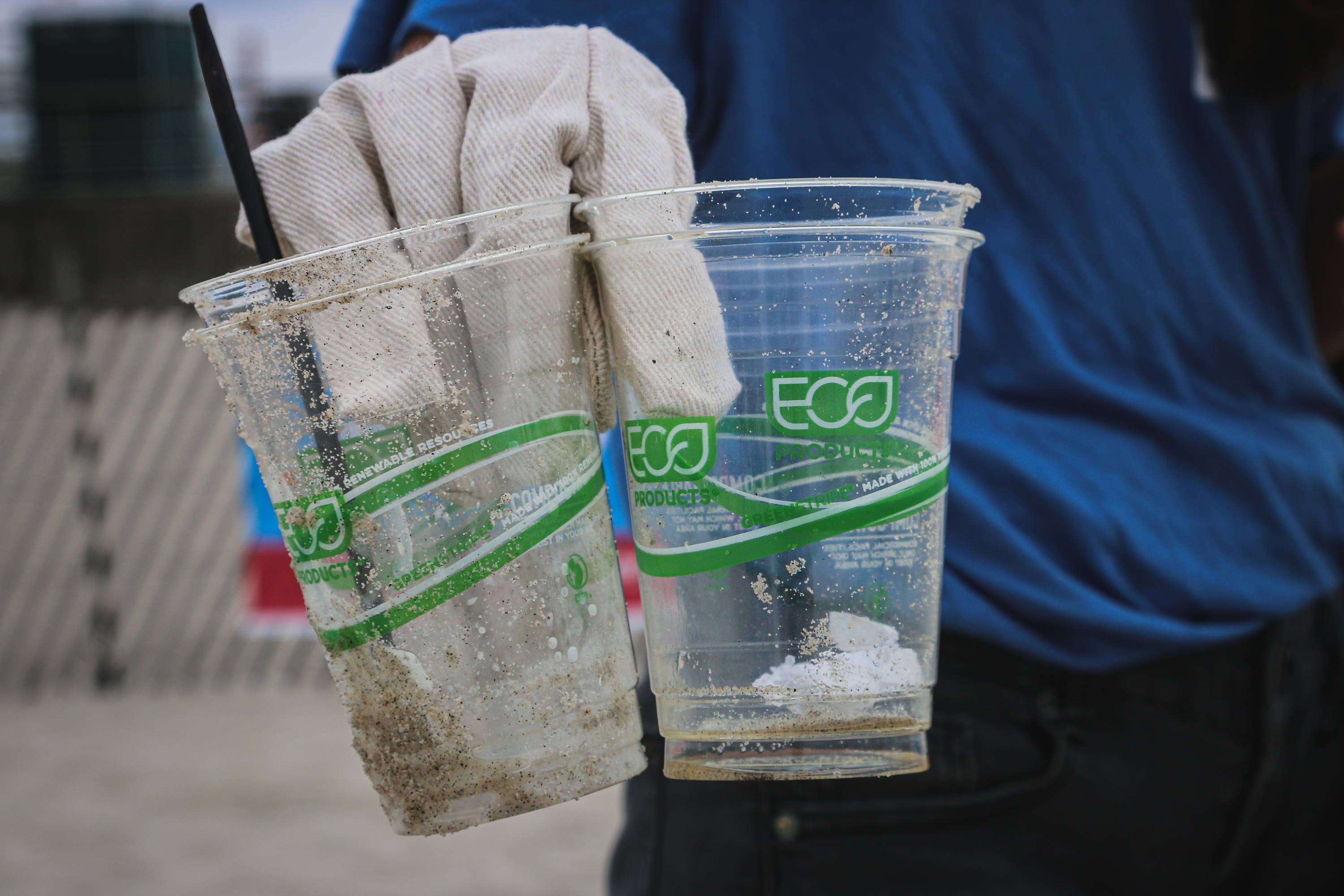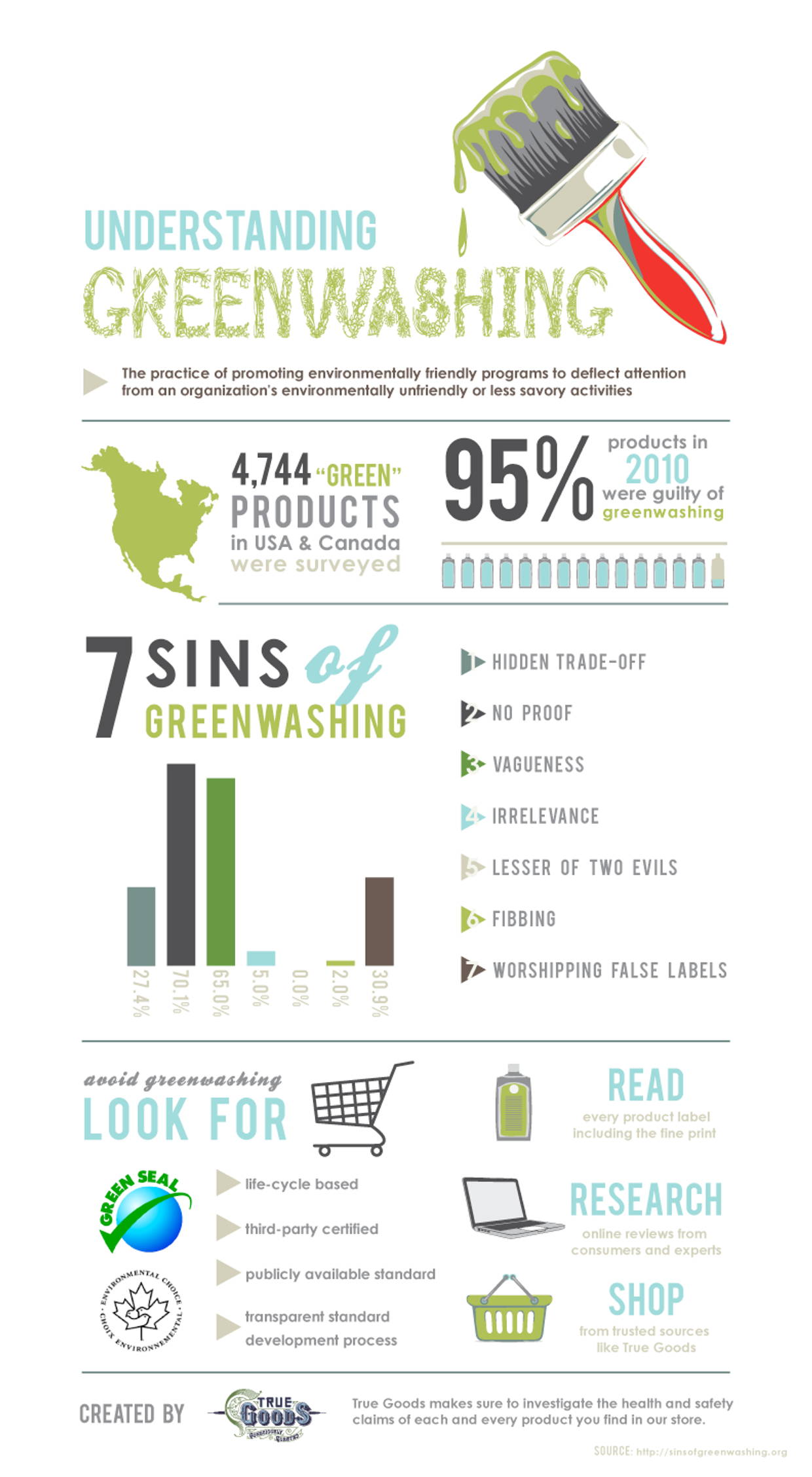Greenwashing 101.
Greenwashing 101.

These 'compostable' plastic cups were found at a beach cleanup in New York. Don't be misled, single use plastic alternatives like these are still harmful to the environment. These 'bioplastics' are often only compostable in an industrial composting facility - meaning in most cases they just end up in the landfill (because they can't be recycled). Even worse, people are led to believe it's more acceptable to litter these items because of their 'green' messaging. The best thing you can do is to REDUCE your plastic consumption in the first place. Photo by Brian Yurasits.
GREENWASHING: Are You Falling For It?
As more of us are becoming increasingly aware of the environmental issues we are facing, companies are introducing more and more "eco-friendly" products and solutions which help us combat threats such as climate change.
However, aside from genuinely sustainable companies, some brands are looking to make a profit off our concern for the environment without actually taking any sustainable measures. This practice, commonly referred to as greenwashing, is a shady marketing tactic designed to make a brand look more sustainable than it really is.
WHAT FORMS CAN GREENWASHING TAKE?
In 2010, the organization Terrachoice conducted a study to identify the different forms that greenwashing can take, as well as its prevalence. They found that 95% of all products labelled as green were guilty of one or more sins of greenwashing:
Hidden trade-off: labelling a product as eco-friendly based on just a small set of attributes. For example, products are commonly marketed as sustainable just because they’re made from a portion of recycled materials.
No proof: making unsubstantiated claims with no evidence of their truthfulness.
Vagueness: we’re all familiar with products labelled ‘natural’ or ‘green’ – terms without a reinforced definition. Anything, even the most unsustainable product, can be marked with them!
Irrelevance: sometimes not-so-sustainable companies will make a statement that is technically true, but does not matter in the context.
Lesser of two evils: a sin often used to label products which belong to an overall unsustainable category, such as petrol cars or cigarettes, as sustainable.
Fibbing: telling plain lies about the product’s environmental performance.
Worshipping false labels: adding a ‘certification’ to the product that doesn’t actually exist (often being made to look similar to genuine sustainability labels).

how to avoid being "greenwashed"
As you can likely tell, greenwashing is something to avoid at all costs if you’re looking to reduce your environmental impact as much as possible.
Thankfully, doing so is not very difficult, as long as you stay aware of the prevalence of greenwashing. That’s because most greenwashing companies aren’t trying to sell their lies to those who are well-informed – they’re hoping to catch those who have more limited knowledge of sustainability unaware.
Here are some of the steps you can take:
Learn more about what makes sustainable products and the most common environmental certifications, as doing so will make you able to recognise greenwashing in just a second.
Always research the environmental claims a company is making and look for proof.
Don’t buy into false, vague promises. Often, greenwashing is designed to appeal to our emotional rather than rational side.
Talk about greenwashing with friends and family, so that more people can learn about it and stay aware.
